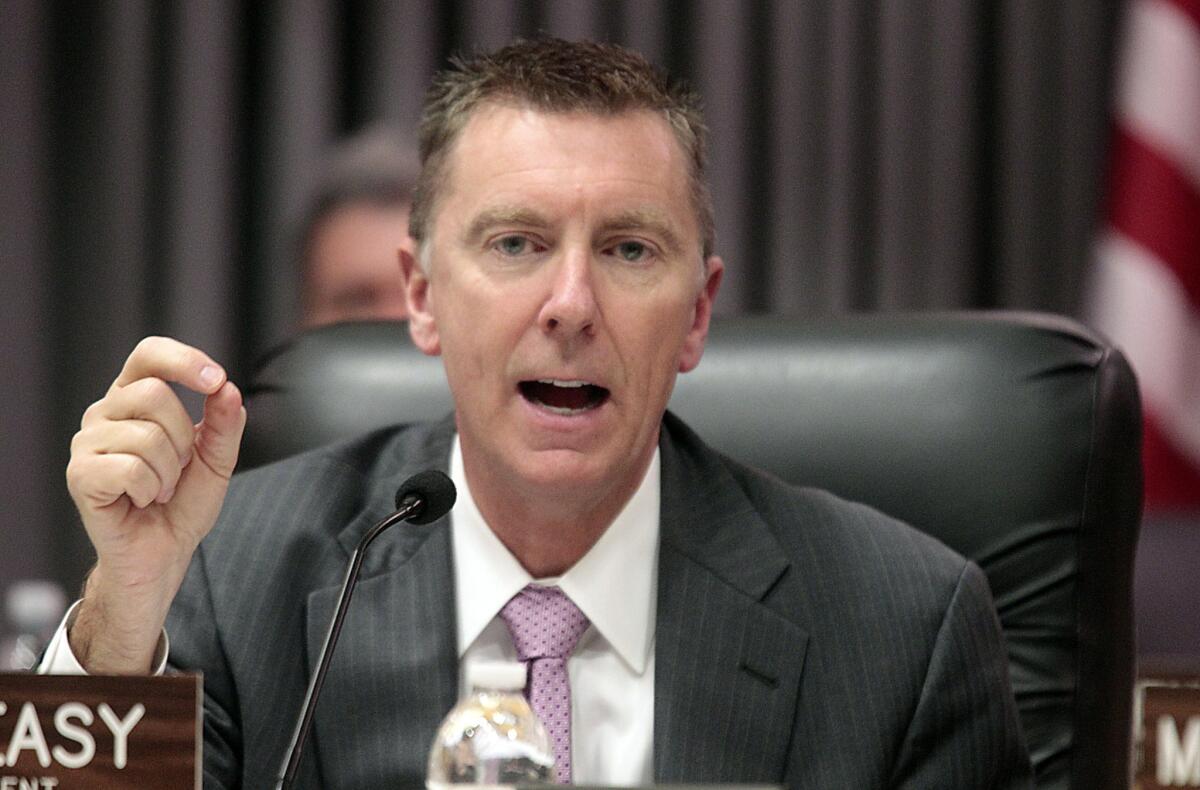New L.A. student records system badly mishandled, report concludes

- Share via
The rollout of a new student records system for Los Angeles schools was problematic at just about every level, according to a consultant’s report released Thursday.
The report is the first independent examination of L.A. Unified’s computer data program, called My Integrated Student Information System or MISIS.
Among the findings:
- No one was responsible for pulling together the various aspects of the complex project.
- The help desk wasn’t ready. There were not enough people, not enough answers and not sufficient updates as the situation evolved day to day.
- L.A. Unified failed to test the new system adequately, a problem exacerbated by its use in summer school. Summer school records themselves were corrupted in the process.
- Data in the system proved unreliable, with the potential to be “catastrophic” for students applying to college.
The findings are hardly surprising for district employees, many parents and students. This fall, thousands of students had to deal with incomplete or inaccurate schedules. Many lacked courses they needed to graduate or fulfill college requirements.
The situation was especially severe at Jefferson High School, eventually prompting a court to order the state Department of Education to intervene.
After initially downplaying the problems, district staff worked feverishly to correct schedules and transcripts ahead of deadlines for college applications.
“Many of our seniors are receiving unofficial transcripts filled with incorrect information,” said a teacher at one high school, who asked not to be named for fear of retaliation.
He said that some students have passed the exit exam, a graduation requirement, but the system doesn’t show it. “This has led to many of them receiving incorrect GPAs,” he said. “This is a serious problem.”
District officials have pledged to help seniors who could be at risk. Supt. Ramon C. Cortines has been in contact with the Cal State and University of California systems as well as some private colleges. He said those institutions are working with L.A. Unified to avoid adversely affecting the students’ applications.
In tracing what went wrong, the report concludes that L.A. Unified didn’t properly account for the greater size and complexity of its needs compared to Fresno Unified, from which L.A. adapted the software.
The entire development process “has been mired with software bugs,” the consultants wrote. And there was a “deficiency” in available experts and insufficient involvement from people who would be using the system.
At many points, red flags indicated serious issues, “but when it came to the ‘Go/No Go’ decision,” the leadership always said “Go.”
“This indicates a lack of communication or understanding,” according to the report, which added: “Holding people accountable ... seems to be a problem.”
But the seven-page report itself, by the Viramontes Group, avoids assigning blame. In fact, it names no one at all.
School board member Tamar Galatzan defended the consultant: “His job isn’t to play the blame game,” she said in a statement. “It’s to get in there right now and fix what we can while we’re rolling down the track. The other piece is how we got there.”
She noted that the district’s inspector general is completing a review -- that could be finished next week -- that “will give us the detail and nitty-gritty about what happened and who is responsible.”
The Viramontes report, although released Thursday, is dated Oct. 16, one day after Supt. John Deasy agreed to resign. His resignation was not linked to a particular event, although some board members were unhappy with his handling of problems with the student records system, among other things.
Deasy also faced scrutiny related to his efforts to provide an iPad to every student, teacher and campus administrator. When he resigned, board members expressed confidence that Deasy would be exonerated from wrongdoing. That project is under review by the inspector general as well.
The district’s head of technology, Ronald Chandler resigned Oct. 31.
Until Thursday, L.A. Unified had refused to release the report. Board members discussed it Thursday in a closed session.
Twitter: @howardblume
More to Read
Sign up for Essential California
The most important California stories and recommendations in your inbox every morning.
You may occasionally receive promotional content from the Los Angeles Times.











